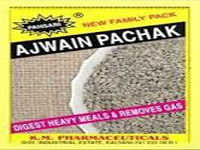In hospitals and other healthcare settings, environmental cleanliness is essential for preventing infections linked to healthcare. Healthcare environments are as distinct as the patient care they provide. All of them, however, from outpatient clinics and long-term patient care to nursing homes and doctor’s offices, have one thing in common: they are exceedingly sensitive spaces that cannot tolerate any kind of pests and infections. Healthcare facilities need to handle particular difficulties and opt for nursing home pest control to provide the best and safest patient care services to all laymen.
Why do nursing homes require pest control services?
Nursing home pest control services are important for the following reasons:
Preserve the Hospital’s Reputation: Preserving the hospital’s reputation and revenue is the main motivation for considering pest control. Patients and visitors would quickly lose faith in and respect for a facility that harbours bugs.
Ensures Patient Safety: Hospital pest control is crucial to the safety of the patients who are hospitalized there, not merely for the sake of the hospital’s reputation. All kinds of pests, including cockroaches, rats, and ants, can lead to allergies and other health problems that put hospital patients’ lives in danger.
Various types of pests are found in the different locations of nursing care facilities. The typical pest-like
Flies: In addition to being an annoyance, flies can quickly transfer illnesses. They move swiftly, so they might eat a resident’s food one minute and trash the next. Salmonella, E. Coli, and staphylococcus are germs that flies may transport and deposit wherever they land. Once they are inside, they are difficult to contain and multiply quickly.
Cockroaches: Cockroaches can also provide significant health dangers to healthcare facilities. However, what worries nursing home managers the most are the bacteria that roaches carry, which can cause food poisoning, diarrhea, and pneumonia. Additionally, cockroach droppings might aggravate asthmatic or allergy symptoms. One such danger is food poisoning. Cockroach droppings and shed skins might also draw another fungus that harms the eyes and lungs.
Rat & Mice: Mice and rats harbour a diverse array of bacteria, viruses, and parasites. In the event that either species becomes established in your assisted living facility, they pose a severe risk to residents’ health. Weil’s disease, hantavirus, and salmonellosis are among the worst illnesses linked to rats and mice.
How to handle the pests in nursing homes?
There are a few ways to prevent pests from from healthcare sector including:
Seal Pest Access Points: Being vigilant about pests’ access points is the first practical step in keeping them out of healthcare facilities. It’s time to properly seal the openings these creepy crawlies use to infiltrate your healthcare institution.
Fix Plumbing Problems: One of the key elements that draw all kinds of bugs is moisture. Therefore, to keep pests away, keep all sources of water leaks away. To do this, promptly fix any leaks and take care of the drainage system.
Regular Cleaning: The fight against pests in private living and waiting spaces and patient rooms involves maintaining overall cleanliness and controlling food waste or storage. Employees are assigned to clean and maintain resident rooms regularly and they should also have a sharp eye for concealed pests like bed bugs.
Store Food Properly in Canteen: All kinds of pests tend to congregate in the kitchen and dining rooms of long-term care facilities. It is important to store and seal the food properly. Keep food sealed and packaged, and dispose of leftovers from the cafeteria appropriately.
Keep Storage Area Dry & Clean: The spaces used for storage and janitorial work are hot spots for pest activity because they aren’t cleaned frequently. Maintaining dry storage spaces and well-ventilated is another way that healthcare facilities might avoid becoming overrun by pests. To avoid insect infestation, make sure the storage location has adequate ventilation.
Maintain Garbage Disposal: The majority of bugs are discovered lurking and eating in the trash that is thrown outdoors or within these types of medical facilities. Therefore, keeping the waste disposal system maintained is crucial. Make sure you routinely wash these dumping devices and replace the rubbish bags.
In conclusion, a nursing home provides medical care facilities to the public. Public health and safety depend on the cleanliness and hygiene of these sectors. So, if the aforementioned techniques fail to keep bed bugs, rats, and roaches at bay, it’s time to speak with an expert and professional nursing home pest control firm. These pest management have skilled employees who are knowledgeable and well capable of identifying and getting rid of various pests from healthcare facilities.

















